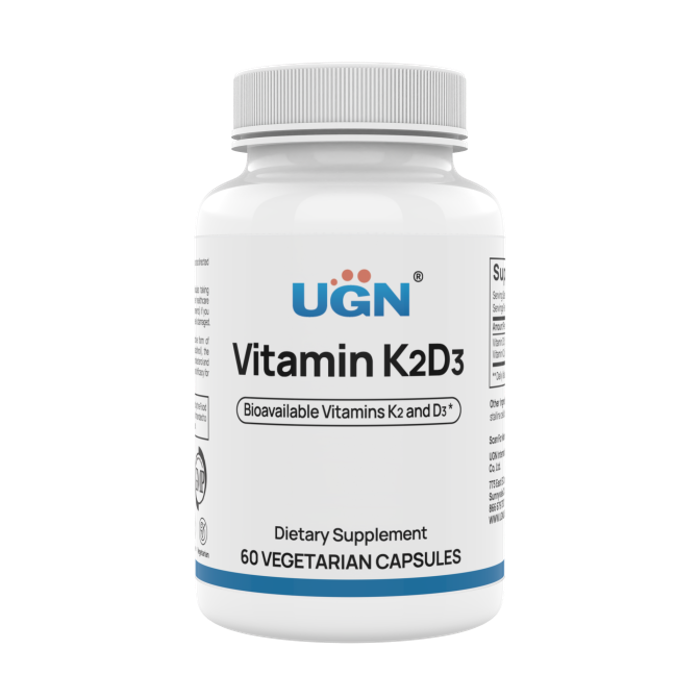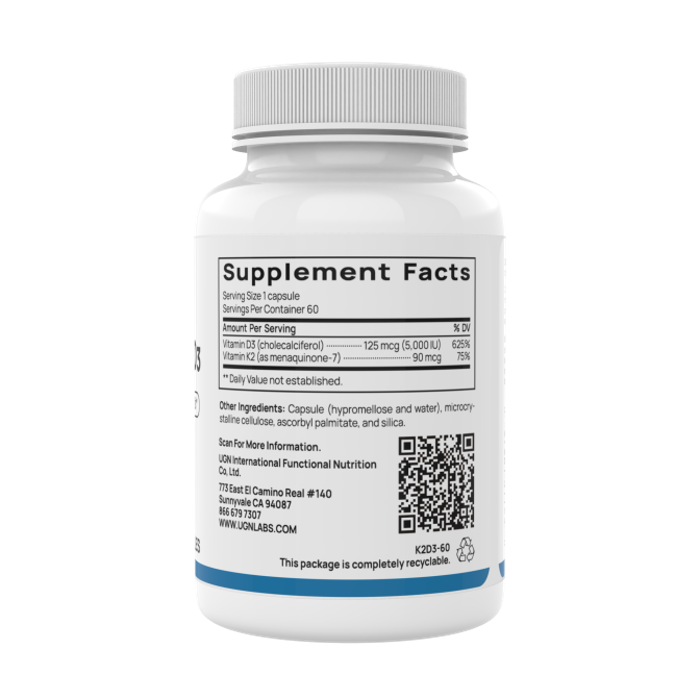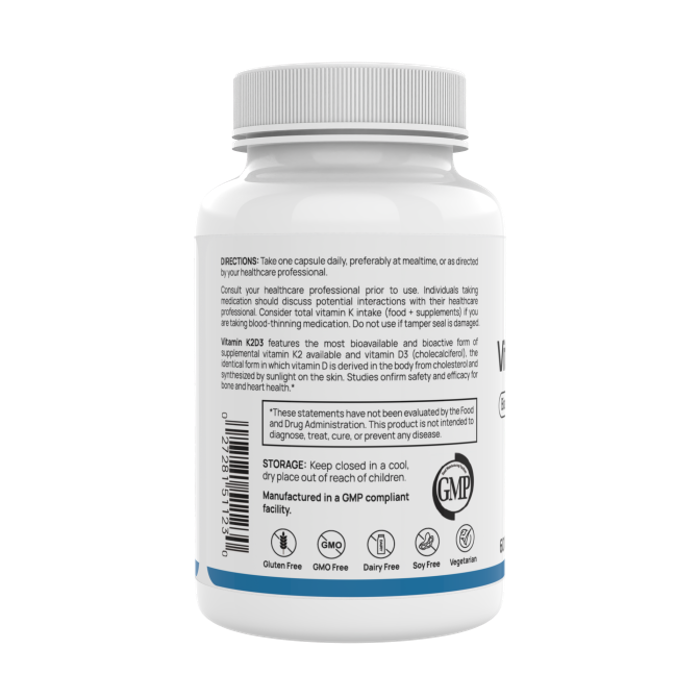



Bone Benefits
Among the dietary factors critical to bone health, vitamin K has emerged as a key player. Vitamin K is believed to be necessary for bone mineralization. Through carboxylation, vitamin K activates osteocalcin, the protein needed to bind calcium to the mineral matrix in bone. Several studies have demonstrated the efficacy of MK-7 (e.g., doses of 45-90 mcg/d) to increase osteocalcin carboxylation and to increase the cOC:ucOC ratio. A high cOC:ucOC ratio is associated with bone health.A recent in vitro study also showed an osteogenic effect of MK-7 administration on human mesenchymal cell differentiation. In addition, the vitamin may protect bone integrity by reducing the synthesis of prostaglandin E2 or interleukin-6 by osteoclasts.Animal and human studies have demonstrated a significant beneficial effect of MK-7 supplementation on bone health. Vitamin K and vitamin D share some similar characteristics and are believed to act synergistically.*
Cardiovascular and Other Health Benefits
Vitamin K benefits cardiovascular health by participating in the carboxylation of matrix GLA protein (MGP), a protein regarded to be the most potent inhibitor of arterial calcification. Researchers have demonstrated that supplementation with vitamin K reduces arterial calcium deposits and that long-term intake of long-chain menaquinones is inversely correlated with calcium accumulation in arteries.* Vitamin K has specific receptor binding sites that allow it to regulate gene activity.Besides its gene-mediating effects upon critical proteins, the vitamin can also bind with the steroid and xenobiotic receptors and influence their expression.In addition, vitamin K also demonstrates antioxidant activity; reduces levels of certain markers, such as acute phase reactants (e.g., C-reactive protein); and participates in the induction of apoptosis.*